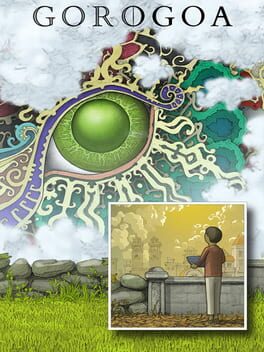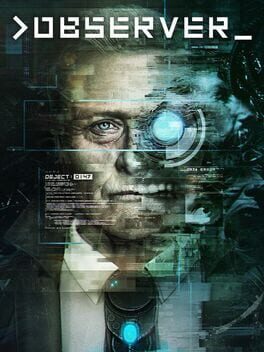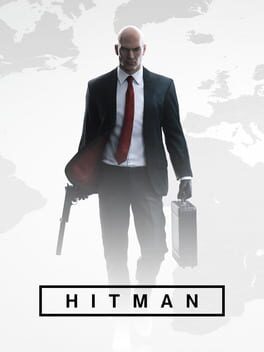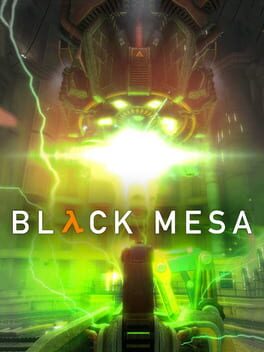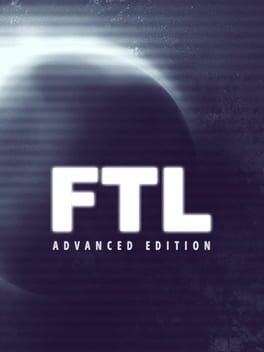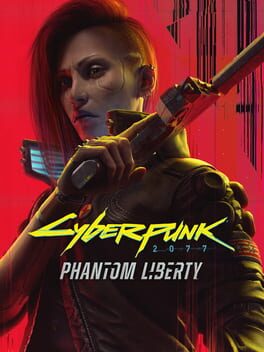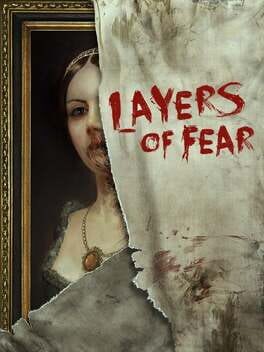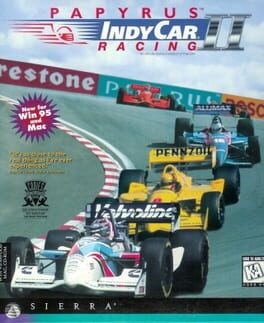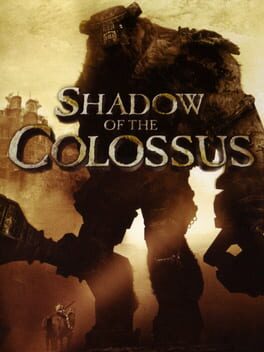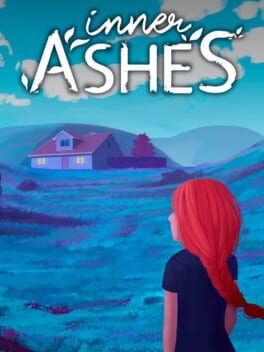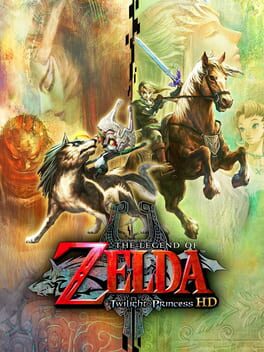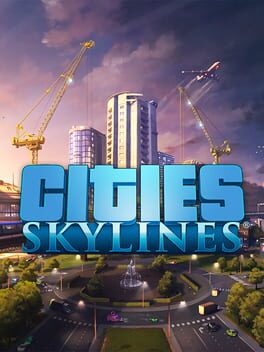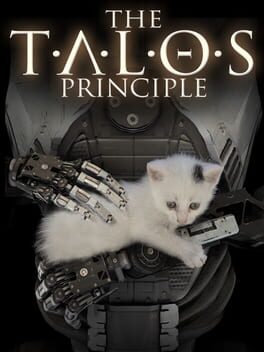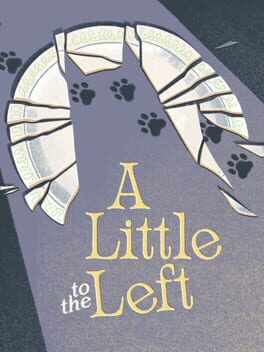Casinocaster
2017
An overwhelming amount of reviews seem to prove that the discourse when discussing this game is restricted to, once again, "oh, so short. But it's nice, I guess!"
For me Gorogoa stands out because of three reasons: an interesting amalgam of 2D visual styles, an excellent design of well-crafted systems when puzzle pieces are limited, and an elegant take on the weight of age and wisdom.
For me Gorogoa stands out because of three reasons: an interesting amalgam of 2D visual styles, an excellent design of well-crafted systems when puzzle pieces are limited, and an elegant take on the weight of age and wisdom.
2017
I am immensely thankful for a dystopian futuristic setting that is not based on a version of the United States of America taking over the entire world. What a breath of fresh air, a cyberpunk Polish Republic is so much more interesting than all the Kojima-styled game settings we usually get.
The game is at its best in the small interactions, where there is room for intricate worldbuilding and fantastic voice acting, but the main story made me lose interest a few hours in. Visually, it soon gets ugly, which is intentional, but it gets to the point of being detrimental to the gameplay; often the augmentation systems weirdly cover the entire screen and you can hardly see anything. The glitch effects make narrative sense but make the experience feel way in need of being remastered, which makes playing the System Redux version the obvious choice.
The game is at its best in the small interactions, where there is room for intricate worldbuilding and fantastic voice acting, but the main story made me lose interest a few hours in. Visually, it soon gets ugly, which is intentional, but it gets to the point of being detrimental to the gameplay; often the augmentation systems weirdly cover the entire screen and you can hardly see anything. The glitch effects make narrative sense but make the experience feel way in need of being remastered, which makes playing the System Redux version the obvious choice.
2016
I slept on this franchise for too long. I never expected it to be this funny; mixing slapstick humor with the usual attempt at seriousness from contemporary western action movies really works out. While the design mainly supports the fantasy of elegant infiltration and thoughtful strategy, there is room for those "screw it, we are going loud" moments a la GTA, making failed runs actually enjoyable when you try to salvage the mission and get your targets down anyway.
The progression system has been discussed long enough at this point (yes, call it Metroidbrainia if you really want) but I really admire the amount of polish and the potential for more and more content, to me it justifies that such a thing as World of Assassination exists.
Regarding this volume specifically, all missions turned out to be neat sandboxes but Sapienza and Marrakesh do stand out in terms of level design. Also audio is incredibly satisfying.
MORRRRTADELOOOOO POWEEEEEERRRRRR
The progression system has been discussed long enough at this point (yes, call it Metroidbrainia if you really want) but I really admire the amount of polish and the potential for more and more content, to me it justifies that such a thing as World of Assassination exists.
Regarding this volume specifically, all missions turned out to be neat sandboxes but Sapienza and Marrakesh do stand out in terms of level design. Also audio is incredibly satisfying.
MORRRRTADELOOOOO POWEEEEEERRRRRR
2015
Rather than my own Black Mesa review, I think the analysis that could be of some interest here would be a breakdown of how it feels to play Half-Life for the first time in 2023. It was enlightening for me to realise how used I am to hand holding in games. I often found myself missing a quest log of some sort, or got lost without a clear goal: I know I have to go to Lambda, but where is that? Should I be able to see it from here? Am I going the right direction? Why am I entering the sewers? Should I really keep trying to reach that ledge? Why can't I remember what the last scientist told me? And so on. These are probably a problem with myself rather than flaws of the game, but still I found a few other issues related to the aging of the original material:
· Lack of exploration whatsoever: 95% of the time, if you can access some place, that is because it is the way to go. Again, this could be a problem with me being used to more modern sandbox games or open worlds, but since very early in the game my location awareness was warped.
· Platforming gets awful at times: narrow spaces and layouts with sometimes unreadable level design gave me more than one headache. It does get better with the tools from the late game, but still I would get stuck or have issues with hitboxes more often than what I would expect in this genre.
· AIs weak spots are common and easy to see.
· Autosaves can happen "anywhere", sometimes even mid-death; it is not really that impactful but lately I am finding that this type of issues triggers me more and more.
· Other technical issues derived from an engine which probably doesn't have much more to give, such as frequent crashes (uncharacteristic for my high-end machine) and a strange bug that kept changing my video settings to literally Potato quality.
A few counterpoints to back up why I can recommend Black Mesa:
· It has the coolest suit up scene in videogames that I can remember.
· It manages to create a feeling of real DISGUST with Headcrabs and Barnacles. Holy shit. Even if I am able to see how plain the instruments are (models, design, animations, audio), the sum of the parts provokes absolute revulsion in me. Brilliant.
· Its soundtrack is 👌.
· I know the hidden hat and pizza challenges get a lot of hate but I genuinely had a lot of fun carrying those items absurdly.
· Lack of exploration whatsoever: 95% of the time, if you can access some place, that is because it is the way to go. Again, this could be a problem with me being used to more modern sandbox games or open worlds, but since very early in the game my location awareness was warped.
· Platforming gets awful at times: narrow spaces and layouts with sometimes unreadable level design gave me more than one headache. It does get better with the tools from the late game, but still I would get stuck or have issues with hitboxes more often than what I would expect in this genre.
· AIs weak spots are common and easy to see.
· Autosaves can happen "anywhere", sometimes even mid-death; it is not really that impactful but lately I am finding that this type of issues triggers me more and more.
· Other technical issues derived from an engine which probably doesn't have much more to give, such as frequent crashes (uncharacteristic for my high-end machine) and a strange bug that kept changing my video settings to literally Potato quality.
A few counterpoints to back up why I can recommend Black Mesa:
· It has the coolest suit up scene in videogames that I can remember.
· It manages to create a feeling of real DISGUST with Headcrabs and Barnacles. Holy shit. Even if I am able to see how plain the instruments are (models, design, animations, audio), the sum of the parts provokes absolute revulsion in me. Brilliant.
· Its soundtrack is 👌.
· I know the hidden hat and pizza challenges get a lot of hate but I genuinely had a lot of fun carrying those items absurdly.
I had huge expectations for this game - in 2023. I had first played Into the Breach, Subset Games' magnum opus, which for me is an indubitable 5/5. When I learnt that ItB had come out of ideas from FTL, another self-contained indie strategy game, my hype for trying this out was considerable, and in that sense I decided to postpone the moment so I could embrace it hungrily some time later. On the other hand, I was really looking forward to finding something similar to Strange Adventures in Infinite Space: ever since I played that game I had never found another strategy/roguelike game set in space with such a fantastical, adventurous vibe.
My experience with FTL has definitely not been bad, but it is not what I expected. To my mind Into the Breach is a more brainy, logical challenge and it is specifically wonderful because the UI and game systems offer a perfect picture of what is going on at every moment, which the player may use in turn to make decisions and lay out strategies. In Faster Than Light, specially when I was learning how to play, the information is not directly there. With a glimpse of the combat screen I was not able to see if my ship was in practice doomed to fail in the next five jumps or if my chosen strategy is going to fall flat earlier than the final boss. I feel like learning how to master FTL (hell, even how to play it) is not on the screen but rather in the space between turns. It is a more indirect meta that you get to absorb through sheer experience and not by play-by-play analysis. I don't dislike that kind of learning processes in games (I am obsessed with Slay the Spire after all) but it affected my fantasy of being the wise, strategic spaceship captain and ultimately was not what I was looking for. Apart from that, the steep learning curve and heavy reliance on randomness didn't help either.
At the same time, FTL has so much going for it. Its beautiful and immersive soundtrack made by Ben Prunty (god tier composer), charming art style and incredible audio design add up as ingredients for a long-lasting indie cult classic. Also I need to mention the achievements, an essential part of the game progression as they are the main condition to unlock ships. Some of them are uncomfortably tied to RNG and became the reason why I invested so many gameplay hours, but most of them are so fun! They really show the good time the devs were having and serve the player as a way to demonstrate that they have understood how secondary mechanics work and that they are able to put them to use. Finally, the additions included in the Advanced Edition should not be ignored: the new systems and crews are not trivial and improve the variability of viable tactics.
I have never watched a single episode of any Star Trek series, but in my mind they must be exactly like an FTL run. Giant alien spiders are no joke.
My experience with FTL has definitely not been bad, but it is not what I expected. To my mind Into the Breach is a more brainy, logical challenge and it is specifically wonderful because the UI and game systems offer a perfect picture of what is going on at every moment, which the player may use in turn to make decisions and lay out strategies. In Faster Than Light, specially when I was learning how to play, the information is not directly there. With a glimpse of the combat screen I was not able to see if my ship was in practice doomed to fail in the next five jumps or if my chosen strategy is going to fall flat earlier than the final boss. I feel like learning how to master FTL (hell, even how to play it) is not on the screen but rather in the space between turns. It is a more indirect meta that you get to absorb through sheer experience and not by play-by-play analysis. I don't dislike that kind of learning processes in games (I am obsessed with Slay the Spire after all) but it affected my fantasy of being the wise, strategic spaceship captain and ultimately was not what I was looking for. Apart from that, the steep learning curve and heavy reliance on randomness didn't help either.
At the same time, FTL has so much going for it. Its beautiful and immersive soundtrack made by Ben Prunty (god tier composer), charming art style and incredible audio design add up as ingredients for a long-lasting indie cult classic. Also I need to mention the achievements, an essential part of the game progression as they are the main condition to unlock ships. Some of them are uncomfortably tied to RNG and became the reason why I invested so many gameplay hours, but most of them are so fun! They really show the good time the devs were having and serve the player as a way to demonstrate that they have understood how secondary mechanics work and that they are able to put them to use. Finally, the additions included in the Advanced Edition should not be ignored: the new systems and crews are not trivial and improve the variability of viable tactics.
I have never watched a single episode of any Star Trek series, but in my mind they must be exactly like an FTL run. Giant alien spiders are no joke.
2020
My experience with DnD is not too extensive, but a few years ago I did play a long campaign that lasted almost two years. While I couldn't say I was still a novice by its end, I never got fully invested in the systems or the experience. I was never able to distinguish what made some sessions a drag and others a wonderful time where everyone was crying of laughter. Eventually I reached the conclusion that, if not the direct cause, the fact that the DM was having fun with what we players were providing was closely related to the emotional richness of the game. This idea resonated with me so much while playing Baldur's Gate 3, this massive powerhouse by the unique Larian Studios that seems to answer the question "hey DM, can I do this" with a "sure, my dude".
While it soon gets very gamey and nothing can really replace a tabletop dungeon master, Baldur's Gate 3 shines the most in those moments of invitation to divert. The game makes you feel (or tricks you into thinking?) that you always have a wide array of possibilities in everything. Cast Silence on those drums so enemies cannot alert reinforcements. Fly over that wall and skip the entire toll quest. Shove that boss off that cliff and omit this whole fight altogether. Embrace barrelmancy. Use your ultra charismatic bard's speech skills to convince that devil to commit suicide. That is the kind of questions I was mentioning before, that only a bold or sufficiently entertained DM will allow. These moments combined with the high production value of animations, music and voice acting are incredibly powerful for the player.
However, everything, even that feeling of practical omnipotence, fizzles out in Act 3. Buggy, sloppy and clearly incomplete a la MGSV, it focuses on an overcrowded city that, nicely crafted though it may be, could have used more negative space. I can't even imagine how it would have felt if the Upper City hadn't been cut. Whereas in Act 1 the game encouraged your exploration and supported your improvisation, all that liberty of choice feels super cramped in the second half of the game.
The implications of your decisions and the ultimate fate of the NPCs you learn to love in Act 1 stop being foreseeable and become almost unfair. While it works wonders to add grimness and seriousness to the plot, it makes you stop caring about the way you play out your quests, after having dedicated so much thought and care to these in the first part of the game.
Unexpectedly, this brought to me a new way to approach a second run: a puzzle of destiny. How can I manage to save Sazza the goblin AND all the tieflings BUT still loot the items from the goblin camp for that sweet build that I just found on Youtube? Is it even possible? How far can I mingle with Minthara without forsaking the Grove? What happens if I ignore the hag completely? What is the highest number of allies I can gather for the final battle scene? And so on. I have to comment here how much I loved that Smash Bros-like "Everyone is here" scene in the end. Small emergent objectives like these help you keep yourself invested even after having felt underwhelmed by the treatment of Act 3. This is only possible thanks to the incredible replayability of the game: the range of builds and origin stories invite you to play one run after another. Even surprising gear combinations affect the gameplay enough to give you the itch to try something new back on level 1.
Overall BG3 is not trying too hard to offer a challenging experience, but a fantasy exercise to linger in for a while. I am not necessarily thinking of romantic fantasies (I hear the horny jail is overcrowded, and when there is no more room in the horny jail the horny will walk the Earth), which here are probably too much on the nose, but also weirdly specific power fantasies: in my first run I was basically Marvel's Hawkeye. The magic arrows system is curiously detailed and very fun to master.
I will remain skeptical when big companies start asking random studios to make more CRPGs just by looking at the immense success Baldur's Gate had, thinking that anybody can make a lot of money in this genre. Meanwhile I am delightfully surprised to say that this was my game of the year.
While it soon gets very gamey and nothing can really replace a tabletop dungeon master, Baldur's Gate 3 shines the most in those moments of invitation to divert. The game makes you feel (or tricks you into thinking?) that you always have a wide array of possibilities in everything. Cast Silence on those drums so enemies cannot alert reinforcements. Fly over that wall and skip the entire toll quest. Shove that boss off that cliff and omit this whole fight altogether. Embrace barrelmancy. Use your ultra charismatic bard's speech skills to convince that devil to commit suicide. That is the kind of questions I was mentioning before, that only a bold or sufficiently entertained DM will allow. These moments combined with the high production value of animations, music and voice acting are incredibly powerful for the player.
However, everything, even that feeling of practical omnipotence, fizzles out in Act 3. Buggy, sloppy and clearly incomplete a la MGSV, it focuses on an overcrowded city that, nicely crafted though it may be, could have used more negative space. I can't even imagine how it would have felt if the Upper City hadn't been cut. Whereas in Act 1 the game encouraged your exploration and supported your improvisation, all that liberty of choice feels super cramped in the second half of the game.
The implications of your decisions and the ultimate fate of the NPCs you learn to love in Act 1 stop being foreseeable and become almost unfair. While it works wonders to add grimness and seriousness to the plot, it makes you stop caring about the way you play out your quests, after having dedicated so much thought and care to these in the first part of the game.
Unexpectedly, this brought to me a new way to approach a second run: a puzzle of destiny. How can I manage to save Sazza the goblin AND all the tieflings BUT still loot the items from the goblin camp for that sweet build that I just found on Youtube? Is it even possible? How far can I mingle with Minthara without forsaking the Grove? What happens if I ignore the hag completely? What is the highest number of allies I can gather for the final battle scene? And so on. I have to comment here how much I loved that Smash Bros-like "Everyone is here" scene in the end. Small emergent objectives like these help you keep yourself invested even after having felt underwhelmed by the treatment of Act 3. This is only possible thanks to the incredible replayability of the game: the range of builds and origin stories invite you to play one run after another. Even surprising gear combinations affect the gameplay enough to give you the itch to try something new back on level 1.
Overall BG3 is not trying too hard to offer a challenging experience, but a fantasy exercise to linger in for a while. I am not necessarily thinking of romantic fantasies (I hear the horny jail is overcrowded, and when there is no more room in the horny jail the horny will walk the Earth), which here are probably too much on the nose, but also weirdly specific power fantasies: in my first run I was basically Marvel's Hawkeye. The magic arrows system is curiously detailed and very fun to master.
I will remain skeptical when big companies start asking random studios to make more CRPGs just by looking at the immense success Baldur's Gate had, thinking that anybody can make a lot of money in this genre. Meanwhile I am delightfully surprised to say that this was my game of the year.
2016
Cool setup, an enjoyable horror experience without great ambitions. It shines the most when the spookyness is conveyed through the ambiance and the mood, rather than with the cheaper jumpscares towards the end of the game. Sometimes it is true it gets very close to being ridiculous, but still the entire premise of getting lost in the insanity of an artist works very well.
Special mention to those devs playing around with first person camera angles, for me some of the tricks here are as praiseworthy as in other fan-favorites like Outer Wilds and Superliminal.
Special mention to those devs playing around with first person camera angles, for me some of the tricks here are as praiseworthy as in other fan-favorites like Outer Wilds and Superliminal.
1993
Unfortunately it has aged very poorly. Its epic and expressive soundtrack goes to waste when you are listening to it on a loop while stuck for fifteen minutes in frustration, trying to figure out which pixel in the colossus' back is grabbable.
While the atmosphere is undoubtedly powerful and the visual design of the colossi stands out even today, the actual design of most encounters is honestly bad and the entire game is seldom readable. More often than not I finished the boss fights feeling exhausted and grumpy, instead of fulfilled or celebratory, and annoyed at the fact that I wasn't really following my own ideas or playing as I thought I had to at first.
I guess it is one of those games that felt way better "at the time", for a generation that had more patience or a different sense of curiosity in videogames, and that is probably something wrong with me rather than with the game, but it feels weird to say so, as the only thing that prevented me from playing this 15 years ago was the fact that I didn't own the magic Sony box.
Edit: boosted up the rating a bit after the moving final section (and that traumatic scene) :(
While the atmosphere is undoubtedly powerful and the visual design of the colossi stands out even today, the actual design of most encounters is honestly bad and the entire game is seldom readable. More often than not I finished the boss fights feeling exhausted and grumpy, instead of fulfilled or celebratory, and annoyed at the fact that I wasn't really following my own ideas or playing as I thought I had to at first.
I guess it is one of those games that felt way better "at the time", for a generation that had more patience or a different sense of curiosity in videogames, and that is probably something wrong with me rather than with the game, but it feels weird to say so, as the only thing that prevented me from playing this 15 years ago was the fact that I didn't own the magic Sony box.
Edit: boosted up the rating a bit after the moving final section (and that traumatic scene) :(
2023
The voice acting in Spanish is shockingly good. The treatment of Alzheimer's disease is very elegant and tasteful: it shines when those small obstacles that the people affected with the condition experience everyday are translated into traditional walking simulator actions.
Without spoiling anything: not gonna lie, I think Enid still is owed a heartfelt apology. Yet I am thankful the story is unraveled in a somewhat uplifting way, I am way too vulnerable to this kind of themes.
Without spoiling anything: not gonna lie, I think Enid still is owed a heartfelt apology. Yet I am thankful the story is unraveled in a somewhat uplifting way, I am way too vulnerable to this kind of themes.
In parallel to finishing my 100% run in BotW, and only days before TotK gets leaked released, I squeezed in my long delayed jump into Twilight Princess. I just noticed it took me three months to finish this, I stretched out my gaming sessions way too much. Consequently, I feel like my review would be a little too skewed, consciously afraid of consuming too much Zelda and getting to TotK with dreaded Hylian fatigue.
But man, is this entry of the franchise weird. I can see that it is generally agreed that it has a problem with pacing, with a very slow and pained beginning; and the character design is, let's say, bold at least. I am not a big fan of the loli stuff they decided to go with for Midna as Link's companion, nor I am really invested in most of the other secondary characters, with the great exception of the yeti couple.
The game shines, however, in its second half, when the player gains momentum after a few dungeons. There is room for epicness (and for OoT fanservice) with no compromise on worldbuilding. The soundtrack is definitely a blast and the gameplay has a few interesting things that make TP worth trying even after playing later entries of the franchise first (sword techniques, for instance).
In summary, it is not going to be my favorite Zelda game but I appreciate the risks taken. Now giff TotK ༼ つ ◕_◕ ༽つ
But man, is this entry of the franchise weird. I can see that it is generally agreed that it has a problem with pacing, with a very slow and pained beginning; and the character design is, let's say, bold at least. I am not a big fan of the loli stuff they decided to go with for Midna as Link's companion, nor I am really invested in most of the other secondary characters, with the great exception of the yeti couple.
The game shines, however, in its second half, when the player gains momentum after a few dungeons. There is room for epicness (and for OoT fanservice) with no compromise on worldbuilding. The soundtrack is definitely a blast and the gameplay has a few interesting things that make TP worth trying even after playing later entries of the franchise first (sword techniques, for instance).
In summary, it is not going to be my favorite Zelda game but I appreciate the risks taken. Now giff TotK ༼ つ ◕_◕ ༽つ
2015
I appreciate the complexity of the systems that are implemented, and I can see how there is a specific type of player that will gain immense satisfaction and replayability from this game (which will be the only game they will ever play). However, ultimately I find this city builder just not exciting; it lacks character or soul or whatever it is that makes me engross myself to a management game and paint everything with my own self-made narrative.
Whenever I try to start the city planning (kind of the point of the game?) I always end up having to improvise, and placing that high school or that police station wherever I have room. If instead I want to relax and start in sandbox mode to replicate any real city, soon I find hard limits in the game mechanics. It seems like the gameplay is meant to always eventually turn your cities into bland, generic towns from the United States, unless you want to really struggle with the infamous traffic issues. Also the base music is horrendous.
I might come back to Cities Skylines to try out one or two of the expansions, but that super aggressive DLC model is not very inviting either.
Whenever I try to start the city planning (kind of the point of the game?) I always end up having to improvise, and placing that high school or that police station wherever I have room. If instead I want to relax and start in sandbox mode to replicate any real city, soon I find hard limits in the game mechanics. It seems like the gameplay is meant to always eventually turn your cities into bland, generic towns from the United States, unless you want to really struggle with the infamous traffic issues. Also the base music is horrendous.
I might come back to Cities Skylines to try out one or two of the expansions, but that super aggressive DLC model is not very inviting either.
2014
A friend of mine had told me that when he played this game he found all puzzle base elements simply not fun, and I realise now that it is true. When compared to Portal (chronologically and thematically it is impossible not to), things like jammers and laser connectors are not something that you feel excited to play around with, as opposed to portal guns and bouncing gels. However, there isn't really much space for disappointment to sink in as the excellent level design constantly pushes the player forward, teaching more and more indirect mechanics and relationships between elements that empower the inevitable "eureka" moments.
Nevertheless, puzzles are not the strongest point of The Talos Principle in my honest opinion: the narrative is what sets it apart from other similar puzzle games, mixing a myriad of themes and influences (from philosophy of mind to Jeff Goldblum) with the right amount of ambition. I have to mention here the strike of genius in those recorder puzzles where you end up, in a way, communicating with yourself from 30 seconds ago, which links directly with what you are being told about the creators of the Talos project in the library archives and voice messages.
Thankfully I never got to a point where a puzzle frustrated me seriously, if anything the ones from the final sections tend to be way longer. What bothered me the most though was the awful game save system, I wonder if it could have been a little more flexible.
Final note: please, you must not sleep on the DLC Road to Gehenna. I think I liked that story even more than the base game. It is true the difficulty of the puzzles spikes up significantly, so at first it may be not appealing at all if you start it right after beating the campaign, with your brain all tired and mashed; but that whole crazy robot heaven Reddit plot is masterfully written and certainly unique.
Nevertheless, puzzles are not the strongest point of The Talos Principle in my honest opinion: the narrative is what sets it apart from other similar puzzle games, mixing a myriad of themes and influences (from philosophy of mind to Jeff Goldblum) with the right amount of ambition. I have to mention here the strike of genius in those recorder puzzles where you end up, in a way, communicating with yourself from 30 seconds ago, which links directly with what you are being told about the creators of the Talos project in the library archives and voice messages.
Thankfully I never got to a point where a puzzle frustrated me seriously, if anything the ones from the final sections tend to be way longer. What bothered me the most though was the awful game save system, I wonder if it could have been a little more flexible.
Final note: please, you must not sleep on the DLC Road to Gehenna. I think I liked that story even more than the base game. It is true the difficulty of the puzzles spikes up significantly, so at first it may be not appealing at all if you start it right after beating the campaign, with your brain all tired and mashed; but that whole crazy robot heaven Reddit plot is masterfully written and certainly unique.
2022
The soundtrack is a blast, and the entire experience fits a very specific and incredibly relaxing spot that I didn't know I craved for.
The only problem is the levels often look like an invitation to rearrange stuff in your own style, when in reality they are a puzzle with a single (and arbitrary?) solution. But as long as you are ok with that you will have a very pleasant time.
Also worth noting this is an extremely rare case of developers actually removing achievements from their game after realising they go against its own philosophy. Super cool move.
The only problem is the levels often look like an invitation to rearrange stuff in your own style, when in reality they are a puzzle with a single (and arbitrary?) solution. But as long as you are ok with that you will have a very pleasant time.
Also worth noting this is an extremely rare case of developers actually removing achievements from their game after realising they go against its own philosophy. Super cool move.
